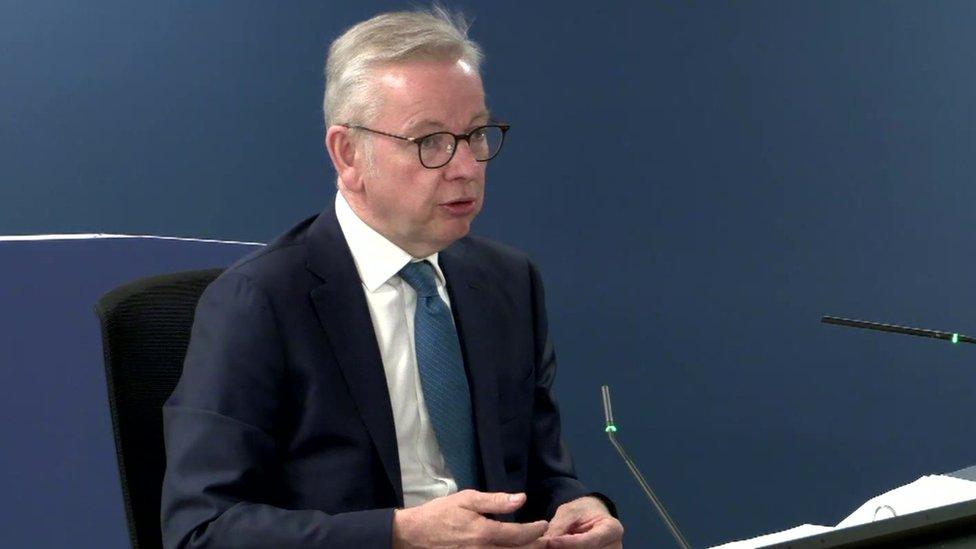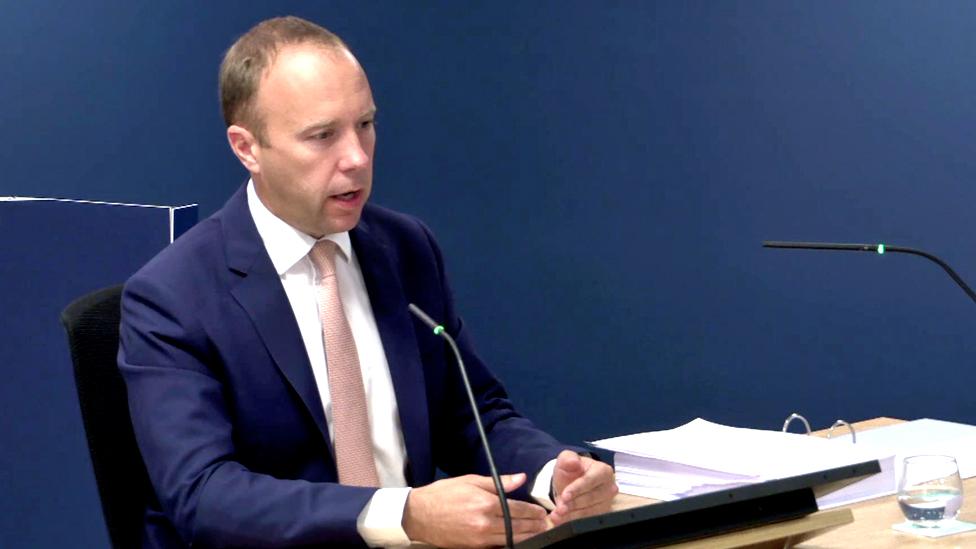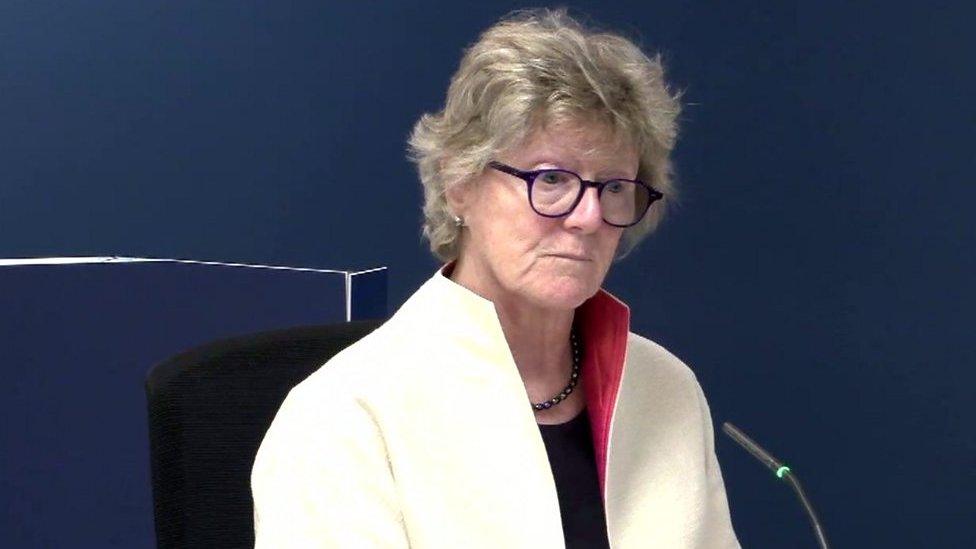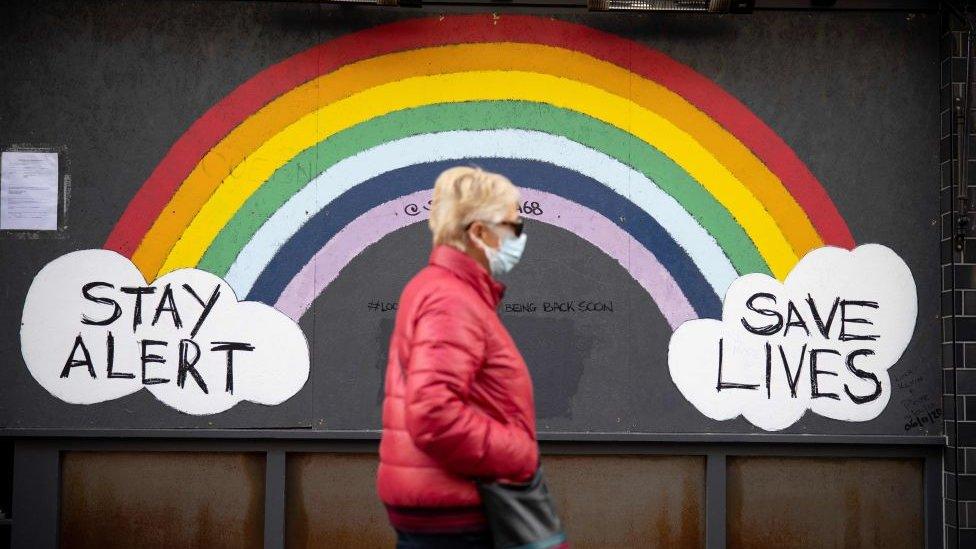Covid Inquiry: Brexit helped prepare government for pandemic, says Gove
- Published

Preparing for Brexit meant the government was "match fit" to respond to the Covid-19 pandemic, Levelling Up Secretary Michael Gove has said.
He told the Covid inquiry civil servants "honed and refined" crisis skills as they worked up ways the UK could leave the EU.
At a previous session, senior civil servant Katharine Hammond said Brexit had distracted officials.
But Mr Gove argued Brexit was "the best preparation" for any future crisis.
The inquiry is aiming to learn lessons from the handling of the pandemic. The first phase of evidence gathering is focused on official planning and preparedness.
A number of senior politicians and officials have already given evidence, including former Prime Minister David Cameron and former Health Secretary Matt Hancock.
Giving evidence on Thursday, Mr Gove said the "pace and the intensity of the work" of preparing for Brexit "ensured a greater degree of match fitness for what was to come".
Mr Gove, who was a senior cabinet minister during the pandemic, said the civil service "grew and expanded in readiness for EU exit".
This meant more staff were available to react when Covid spread across the UK, he added.
'Resources diverted'
"I would argue the skills acquired, honed and refined during EU exit prep helped us not only to have an organisational system better in dealing with process - but to have a cadre of people who'd been through an intense process that enhanced the ability to respond," he told the inquiry.
The inquiry has previously heard that the UK paused its pandemic preparedness plans, made in the wake of the 2016 flu epidemic, to concentrate on Operation Yellowhammer - the government's contingency plan for the disruption anticipated in the event of a no-deal Brexit.
Former Scotland First Minister Nicola Sturgeon told an earlier session of the inquiry preparing for Brexit had hampered pandemic preparedness in Scotland.
Devising contingency plans for a no-deal Brexit "meant that a significant amount of time, energy and resource was diverted into that from a range of other matters," she told the inquiry.
Similarly, Wales' most senior medical adviser told the inquiry preparations for a no-deal Brexit held up work to plan for a future pandemic there.
Under questioning from Kate Blackwell KC, Mr Gove said he did not agree that the "overloading of staff" with work on leaving the EU meant their focus was "bent away" from preparing for a pandemic.
Mr Gove, a leading campaigner for Vote Leave, said: "It can not be proved that the fact that the committee did not meet means that we were not as well prepared for the pandemic.
"Preparation for EU exit in and of itself was some of the best preparation that could have been undergone for any future crisis."
Mr Gove told the inquiry the UK, along with other western nations, was unprepared for Covid because it was too focused on planning for a new form of pandemic influenza instead.
He said he had "a lot of sympathy" with the argument, put forward by Mr Hancock, that UK planning should have focused more on preventing Covid arriving and taking hold in the first place.
What is the Covid Inquiry?
It is about going through what happened and learning lessons
No-one will be found guilty or innocent
Any recommendations made do not have to be adopted by governments
The inquiry has no formal deadline but is due to hold public hearings until 2026
Scotland is holding a separate inquiry in addition to the wider UK one
- Published27 June 2023

- Published20 June 2023

